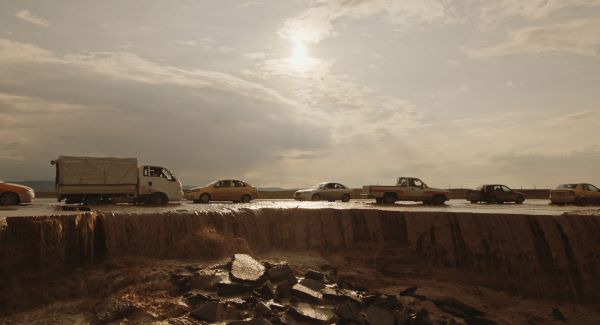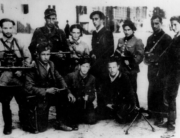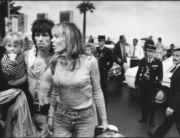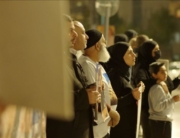
When it comes to film, we are generally accustomed to viewing the Middle East, and the effects of 21st-century violence therein, through Western eyes. The Hurt Locker, The Green Zone, and many others are from the perspective of American troops; the recent 7500 features an encounter with terrorists through the eyes of predominantly Western victims.
These films are not interchangeable, and a few of them are brilliant. Nevertheless, Gianfranco Rosi’s bold new documentary Notturno arrives with the promise of being much, much more. Compiling footage gathered from more than three years filming along the borderlands of Lebanon, Syria, Iraq, and Iraqi Kurdistan, Rosi aims to create a portrait of this region through a total immersion in the daily lives of its people, not the rich and powerful but those, as Rosi says in the press notes, “humble people, who live at the gates of hell.” It is a representation of the normality that remains under, or adapts itself to, danger and suffering. His interest is not in borders and definitions—these, in his eyes, are what have perpetuated the region’s many conflicts—but in shared human experience.
The content of the footage, and the artistry with which it is filmed, is, frankly, staggering. Again and again, I kept asking myself how on earth did Rosi manage to film his subjects, and in such private situations. We view, for instance, a woman in a dark room listening to voicemails from her daughter, who has been captured by ISIS. For most of this scene, her face remains impassive, but at the end, a single tear rolls down her face.
We are in more than one apartment where the action is subdued and pedestrian while we hear distant gunshots. Some sequences are spread throughout, such as one in a Baghdad psychiatric ward where patients are rehearsing a play about trauma caused by ISIS. In another, a duck hunter glides down a river in a canoe while gunshots are yet again audible in the distance.
One of the first, and strongest sequences, involves a group of women entering a deserted stone fortress to mourn the loss of their sons to violence. Through these and many other scenes, Rosi overwhelmingly conveys a sense of the devastation of this region and its endless conflicts. The lighting, framing, and sound quality are so cinematically rich that it initially made me question whether or not Notturno is a documentary.
What is so disappointing about the film is that it ultimately does not work. By the end, we have the sense that, while the footage Rosi filmed is vital, he has failed his subject. The source of this failure is in his given approach. Here, there is no explanation whatsoever. The sequences are long, quiet, and, in their organization, disjointed. The filmmaker places so much trust in the ability of these images alone to speak for themselves, to render commentary unnecessary.
However, the ultimate effect is that it is too easy to lose focus, and crucial scenes lose their power. This makes for an astonishingly frustrating viewing experience, given that the content is so important. We do not want, for instance, to be close to tuning out as we listen to traumatized children describe to a teacher violent episodes with ISIS and the horrifying drawings of their experiences they have made. Yet Rosi has made a film where it is both possible and probable that viewers will do just that.
Rosi has made it clear in the press junket that he did not want to provide context or narration, that he believed doing so would emphasize distinctions, and therefore divisiveness. His impulse is understandable but misguided. Usually, I am all for films that leave much implied and make the audience work, but this is not material that should risk having the audience lose focus. Without any kind of guidance, explanation, or context, and with so much stillness, Notturno verges on formlessness, threatening to bury its ideas and insights. It leaves us hungry for the film that could have been.






Leave A Comment